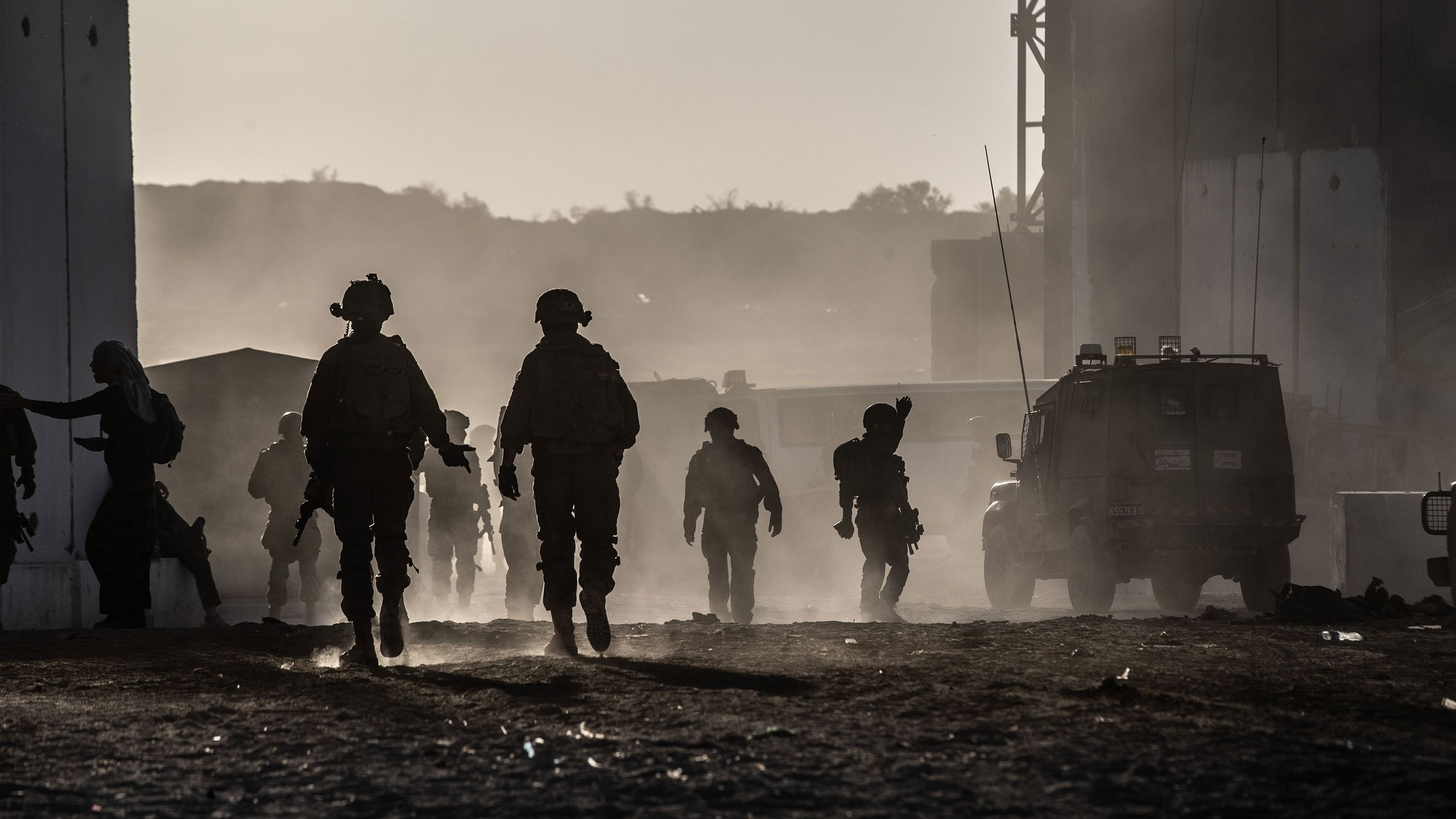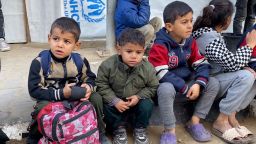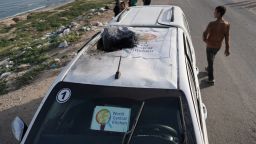Israel has approved the reopening of the Erez crossing between Israel and northern Gaza for the first time since the October 7 Hamas attacks, a decision that came soon after US President Joe Biden pressed Israeli Prime Minister Benjamin Netanyahu to do more to allow in aid.
An Israeli official told CNN the crossing would be opened to allow more humanitarian aid to enter blockaded Gaza. The Israeli cabinet also approved using the Israeli Port of Ashdod to help transfer more aid to Gaza.
Erez is expected to receive the first humanitarian aid shipments into the enclave on Sunday, Israeli officials told CNN, adding that aid shipments will also begin flowing into Ashdod port on Sunday.
Hisham Adwan, Director of the Gaza Crossings and Borders Authority, which operates the Gaza side of the crossing, told CNN on Friday that “we have not been informed of anything new regarding the crossings,” adding that his team was also unable to assess the extent of the damage caused by the war.
Israel’s move comes after Biden said Thursday that the overall humanitarian situation in Gaza had become unacceptable in a call with Netanyahu and warned Israel to take steps to address the crisis or face consequences.
The Erez crossing, a pedestrian passageway, was one of the border points breached by Hamas fighters on October 7 when they launched their bloody attack on Israel, killing 1,200 people and taking 250 others hostage.
It remains unclear how the reopening will be implemented; the volumes of aid deliveries that have been allowed through crossings in Gaza’s southern border so far have been insufficient compared to the scale of human suffering in the territory.
The United Nations welcomed news of the reopening cautiously. “This is positive news but, of course, we will have to see how this is implemented. We need a humanitarian ceasefire and a massive influx of aid,” spokesperson to the UN Secretary General, Stephane Dujarric, said Thursday.
The Norwegian Refugee Council (NRC) on Friday said the news offered a “glimmer of hope” amid a humanitarian catastrophe in Gaza. The Council’s Secretary General Jan Egeland stressed Israel needed to show “tangible improvement in the situation for civilians on the ground.”
The UN’s Relief and Works Agency for Palestine Refugees in the Near East (UNRWA), the principal aid agency for Gaza, has been sidelined by Israel and remains restricted in parts of the enclave – particularly the north where the risk of famine is the highest and cases of death by starvation have been reported.
Since January, residents of northern Gaza have been forced to survive on an average of just 245 calories a day, according to Oxfam.
Thursday’s announcement also comes amid mounting international fury over Israeli strikes that killed seven aid workers from the World Central Kitchen in Gaza. Israel has acknowledged responsibility for the deaths, but maintains the attack was not intentional.
What is the Erez crossing?
Located north of the Gaza Strip, Erez (or Beit Hanoon) was the main crossing for the movement of people between Israel and Gaza before Israeli authorities closed it following the October 7 Hamas attack.
It is primarily a pedestrian crossing but can also be used for road supplies.
Before the war, the majority of those traveling through Erez were Palestinian residents of Gaza who entered Israel for medical treatment or business purposes, according to the Israeli ministry of foreign affairs. Staff working for international organizations in Gaza also used the crossing.
Some 800,000 Gazans entered Israel through Erez in 2022 and another 550,000 crossed in the first half of 2023, according to Israeli government data.
Israel has been criticized for blocking much of Gaza’s population from traveling through Erez for almost two decades. Movement through all of Israel’s crossings with Gaza were already heavily restricted before the war, as Israel imposed a blockade of the territory with Egypt 17 years ago.
The only crossings currently operational are the Rafah crossing with Egypt and Kerem Shalom with Israel.
Trickling aid
Since the October 7 terror attacks, Israel’s siege of Gaza has killed at least 32,916 people, according to the Gaza Ministry of Health, and has led to a spiraling humanitarian crisis where nearly three-quarters of the population in northern Gaza are suffering from catastrophic levels of hunger, according to a UN-backed report.
Land crossings into Gaza, through which the bulk of vital aid has traditionally entered the territory, remain heavily restricted by Israel. Aid agencies have accused Israel of throttling the entry of relief into the war-ravaged territory, though Israel has said it has “no limit” on the amount of relief that can enter.
As of March 28, 168 trucks were entering Gaza daily on average, according to the UN. An average of 500 trucks entered Gaza per working day before the war in 2023.
Before the war started, Israel restricted all access to and from Gaza by sea and air, and kept land crossings under tight control. It had two functional crossings with the enclave: Erez, which was for the movement of people, and Kerem Shalom, for goods.
Gaza also has one crossing with Egypt, at Rafah, which is run by Egyptian authorities. While Israel has no direct control over this crossing, it monitors all activity in southern Gaza.
Israeli Defense Minister Yoav Gallant vowed to halt the supply of electricity, food, water and fuel to the Palestinian enclave after October 7.
Aid began to trickle in through Rafah at the end of October, and, following pressure from the US, Israel began allowing aid trucks to pass through Kerem Shalom in late December – but at rates far below the 500 commercial and aid trucks a day before the war.
Today, all 2.2 million people in Gaza do not have enough food, with half of the population on the brink of starvation and famine projected to arrive in the north “anytime between mid-March and May,” according to the Integrated Food Security Phase Classification (IPC).
The World Central Kitchen was central to a much-touted new sea corridor from Cyprus but it, along with at least two other aid organizations, are suspending operations in Gaza after Israeli airstrikes killed its workers.
This is a developing story and will be updated.
CNN’s Nadeen Ebrahim, Abeer Salman, Kareem Khadder, Vasco Cotovio and Caitlin Hu contributed to this report.






